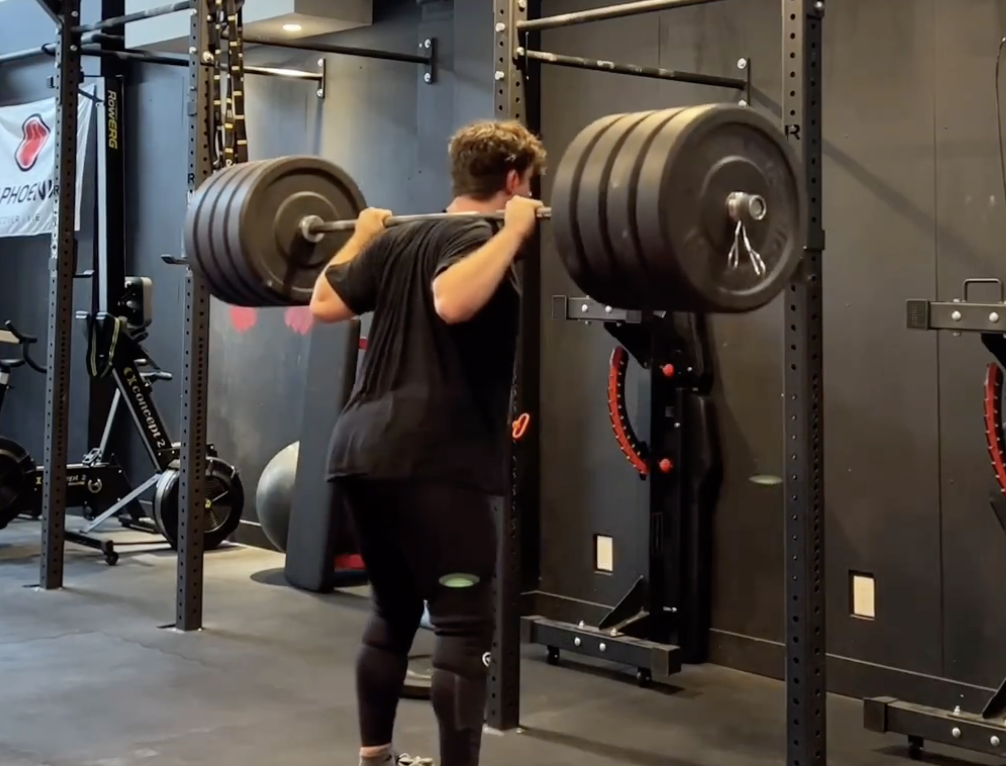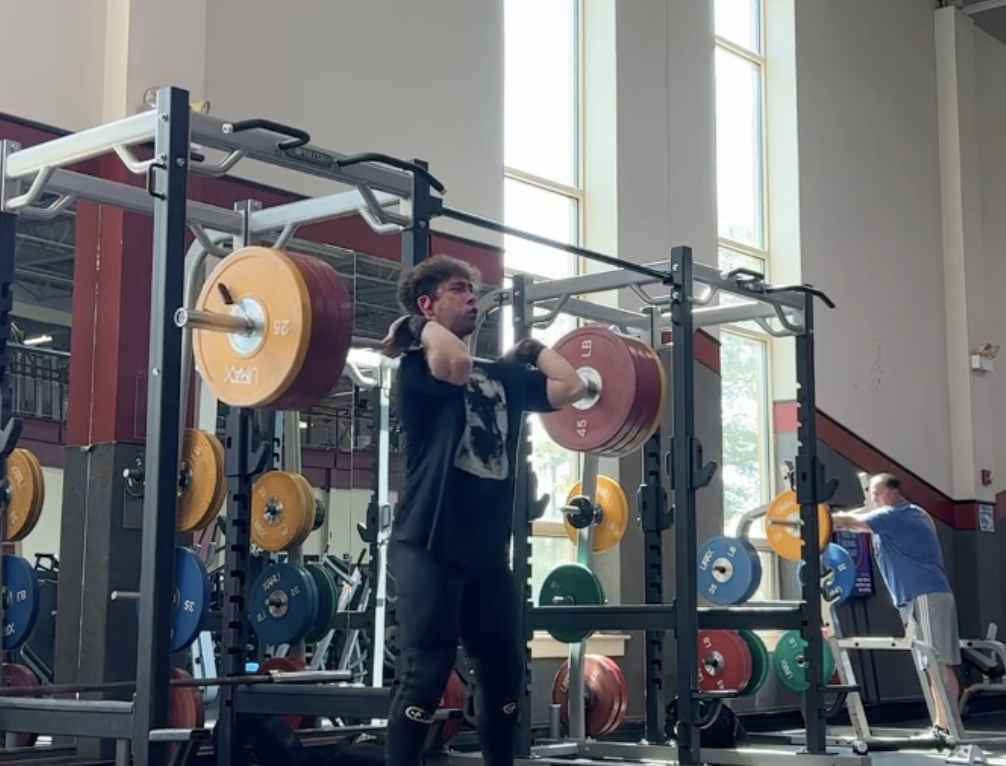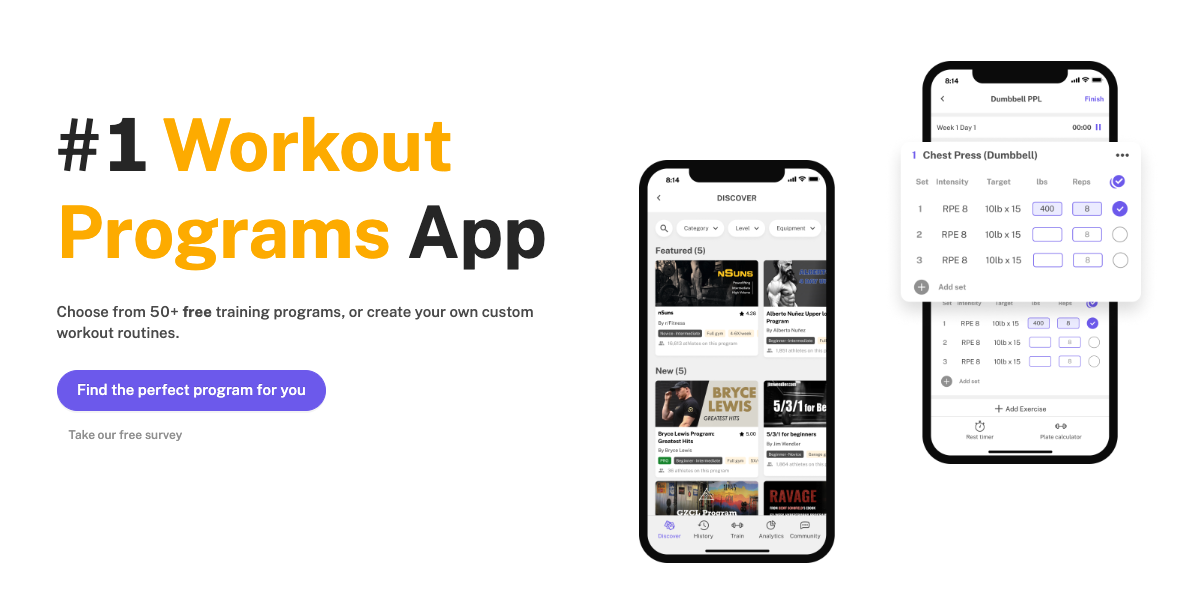Advice for New Lifters
Written by the Boostcamp staff
One year programming advice from none other than Alex Bromley
Countless new people decide to sign up for the gym for the first time every day, but a lot of them will give up within the first year because they are not putting on the muscle mass or strength that they would like to. That being said, what advice is there for new lifters? This is a topic that came up when Boostcamp’s very own Michael Liu sat down with professional strongman, renowned powerlifter, and coach who has several programs on the app, Alex Bromley, during the latest episode of the Boostcamp Podcast.
Alex is a renowned expert in the strength sports field, and has multiple programs on the Boostcamp App. So, what did he have to say for new lifters?
Linear Progression

The first thing that Alex stated was that if a new lifter came to him asking for advice, he almost always defaults to a linear progression program. He states that the biggest problem with a new lifter is not the recovery ability, nor is it balancing the training routine on the head of a pin, but a new lifter can do almost anything and still grow. He states that this is a superpower, as well as a kryptonite because it makes new lifters believe that whatever they did in the beginning to grow will always work, but this is not the case.
On the journey to hit your genetic potential, you will make quick and easy gains when you first start out, as your body is rapidly adapting to the new change in lifestyle. This does not mean your training methods from when you first started lifting will always work. Alex states that too often, people think they’ve figured it out when they are only six months in. This is why he will gravitate towards a linear progression program when someone is new to lifting, as it will help them out down the line, because they are always learning.
A linear progression teaches people the basics of sticking to a program, progressively overloading, and builds the foundation.
A Little Bit of Play for New Lifters
Alex goes on to use the example of professional golfer, Tiger Woods, whose father had him swinging a golf club for thousands of hours, and too often you see people in youth sports doing this same thing, believing their child will be the next best thing. He says that you need variety, a little bit of play, for someone to enjoy the process of their training, gain a wide variety of skill sets, and build a base. So how does this tie into advice for a new lifter?
Well, the example Alex uses for new lifters, is a program that will incorporate a little bit of bodybuilding training, with things like barbell movements, calisthenics, a mix of compound and isolation movements, and so on. This variety of training widens your base, makes you comfortable in different positions, and you can be more efficient and generate more force in a particular lift. On the other hand, if you are starting with one particular lift each session, you more than likely will lack the wide variety of capabilities.
Bodybuilding is Ideal for New Lifters
Alex states that what it comes down to is finding the balance of if new lifters should start with this wide variety of workouts and strengthen all areas of their fitness, or start with just the basics and get those down to a T. The issue with this is that both methods will work at first. Alex then makes a statement that in a perfect world, if everyone started their first two years of lifting with bodybuilding training, that would be ideal.
He uses the example of powerlifters who train with just the squat, barbell bench press, and barbell deadlift. While they train very specifically, sticking to their big three movements somewhat like Olympic Lifters do with theirs, Alex pulls out another good example. He states that his friend who is a powerlifter explained his novice routine, and it consisted of a lot of accessory work such as dumbbell curls, lunges, step ups, and so on. This shows that in his friend’s earlier years as a powerlifter, even though he focused on the big three lifts, he still had a lot of “bodybuilding” type of movements to build up foundational strength and muscle mass.

Alex states that new lifters do need to get a good grasp on the three movements quickly, as they truly build the foundations. However, he says that new lifters should be well rounded with accessory movements, or “play” as he refers to it.
What is Best For New Lifters?
To conclude the video, Michael asks Alex if new lifters to be using a program like Greyskull, which is a beginner program, for six months, followed by a bodybuilding program would be ideal. Alex reiterates that for new lifters, he would take a more simple, linear progression for a main barbell lift, which would then be followed up by bodyweight or bodybuilding type of work, “play” as he refers to it. This will help new lifters become accustomed to the different machines, exercises, help learn balance and your body, and really just become comfortable with training in the gym.
Alex says that new lifters do not need to be doing 12 exercises per workout, although there could be some value in that, so measuring which is better or worse may be hard. He says that training the youth, or new lifters, does not have to be as complicated as some people may make it.
Where Can You Find Beginner Programs?
Now, as a new lifter, you may be wondering where you can find some good beginner workout programs. Luckily, there are over 50 free workout programs right on the Boostcamp App, including workouts from Alex Bromley! Take a look at those programs, and find which is best for you. You can also create your own program.
A workout program will help you track progress and keep you accountable for your gains.
New Lifters Wrapped Up
Overall, when it comes to advice for a new lifter, Alex Bromley suggests that you get comfortable with the basic barbell movements, but also add a little “play” into your training. This means doing bodybuilding movements, calisthenics, and really just getting comfortable with different pieces of equipment and exercises. There are plenty of beginner workout programs to choose from on the Boostcamp App!
Also, be sure to follow Boostcamp on Instagram and subscribe on YouTube!


